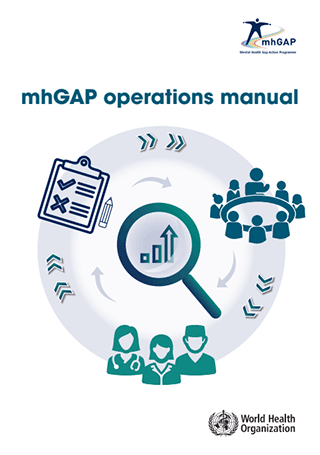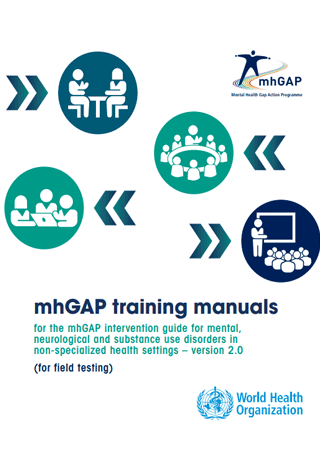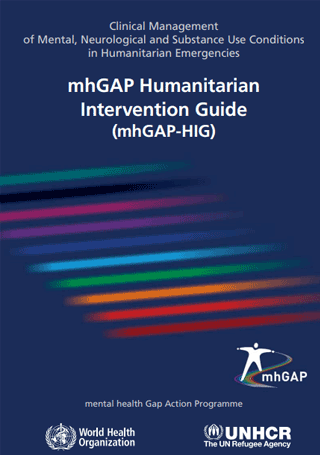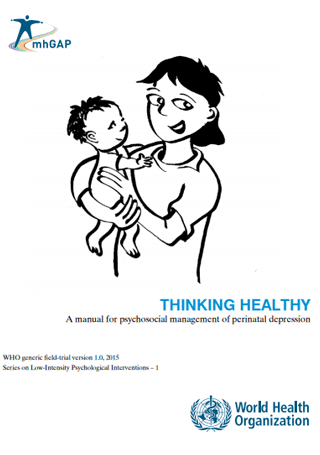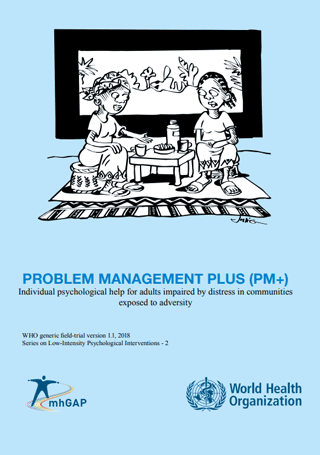Mental health gap action programme (mhGAP)
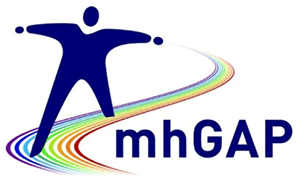 In 2008, WHO launched the mental health gap action programme (mhGAP) in response to the wide gap between the resources available and the resources urgently needed to address the large burden of mental, neurological, and substance use disorders globally. Through mhGAP, WHO aims to provide health planners, policy-makers, and donors with a set of clear and coherent activities and programmes for scaling up care for mental, neurological and substance use disorders.
In 2008, WHO launched the mental health gap action programme (mhGAP) in response to the wide gap between the resources available and the resources urgently needed to address the large burden of mental, neurological, and substance use disorders globally. Through mhGAP, WHO aims to provide health planners, policy-makers, and donors with a set of clear and coherent activities and programmes for scaling up care for mental, neurological and substance use disorders.
Mental health action programme (mhGAP)
The treatment gap
Mental, neurological, and substance use disorders are highly prevalent in all regions of the world, and they are major contributors to disease, premature death, and disability worldwide. They are also frequently associated with high levels of stigma and human rights violations, particularly in low- and middle-income countries.
About 1 person in every 10 worldwide is suffering from a mental health disorder
About 1 person in 4 families has a member with a mental health disorder
Only 1% of the global health workforce provides mental health care
Most low- and middle-income countries spend less than US$ 2 per person on the treatment and prevention of mental health disorders
76-85% of people with a mental health disorder in low- and middle-income countries do not receive treatment
Objectives of mhGAP
The development of the mental health action programme (mhGAP) reflects WHO’s commitment to closing this gap by scaling up care for mental health and substance use disorders. The key objectives of the action programme are:
to reinforce the commitment of governments, international organizations, and other stakeholders to increase the allocation of financial and human resources for care of mental health and substance use disorders.
to achieve much higher coverage with key interventions in the countries with low and lower middle incomes that have a large proportion of the global burden of mental health and substance use disorders.
Through these objectives, mhGAP provides evidence-based guidance and tools to advance toward achieving the targets of the mental health action plan 2013-2020.
Mental health action plan 2013-2020
Watch mhGAP in action
Resources
Several resources are available to help reduce the treatment gap and improve the capacity of countries to respond to the large burden of mental, neurological and substance use disorders.
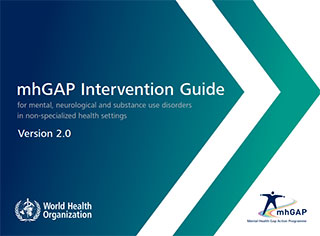
mhGAP intervention guide - version 2.0 (2016)
mhGAP intervention guide – version 1.0 (2010)
mhGAP intervention guide app (2017)
mhGAP evidence resource centre
The mhGAP evidence resource centre contains the background material, process documents, and the evidence profiles and recommendations in electronic format for mhGAP guidelines for mental, neurological, and substance use disorders. The evidence resource centre is organized around the mhGAP priority conditions: depression, psychosis, epilepsy, child and adolescent mental and behavioural disorders, dementia, disorders due to substance use, self-harm/suicide, and other significant mental health complaints.
mhGAP evidence resource center
Related links
mhGAP module assessment management of conditions specifically related to stress








